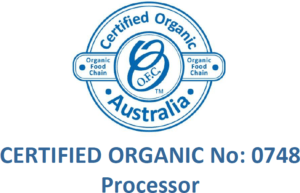As a potent antioxidant and an integral nutrient for cellular respiration and ATP [energy] production, CoQ10 is an extremely valuable nutritional supplement for anyone presenting with fatigue, oxidative stress, cardiovascular disease and neurological conditions.
CoQ10 is synthesised in the liver from tyrosine via a number of complex chemical reactions, and is concentrated in organs such as the heart, kidneys and muscle. This production naturally declines with age, to the extent where levels may become inadequate for optimal health.
Age related reductions in CoQ10 are most evident in the mitochondria, causing fatigue as we get older, which could be helped with supplemental CoQ10. The elderly also commonly suffer from cardiovascular dysfunction and neurological disease, which are also associated with CoQ10 depletion.
CoQ10 is essential in the production of energy in the cells. Depleted levels of CoQ10 may impair mitochondrial function and result in symptoms of fatigue and lethargy, which may be helped by supplementing with at least 100 mg CoQ10 per day.
Evidence suggests that poor mitochondrial function and oxidative stress may be a major factor in the cause of various neurological disorders including Parkinson’s disease and Alzheimer’s disease. Supplementation with CoQ10 may be an effective treatment strategy to prevent degeneration of the nervous system.
A randomised, double-blind, placebo-controlled trial assessed the effects of 300, 600, and 1200 mg of CoQ10 per day for up to 16 months in patients with early unmedicated Parkinson’s disease. Findings indicated that those supplemented with CoQ10 experienced less functional decline – an effect that was amplified at the higher dose.
For ongoing support of optimal cognitive function, consider Enhanced Bioavailability Coenzyme Q10 150 mg. This supplement provides 150 mg CoQ10 per capsule in a patented emulsification system (Ensorb™) designed to enhance its bioavailability and provide the best clinical outcomes.
The heart muscle is a dense reservoir of co-enzyme Q10, which may become depleted not only with age, but also with cardiovascular disease and ischaemic damage. Nutritional and Herbal Support for a Healthy Heart containsSalvia miltiorrhiza (dan shen), Crataegus monogyna (hawthorn), folic acid, and vitamin B12, as well as 150 mg CoQ10, when taken at a recommended dose of 1 capsule twice daily. This formula is particularly beneficial in the management of cardiovascular conditions associated with reduced cardiac output, coronary artery disease, angina, cholesterol, triglycerides and/or high blood pressure.
Elderly people may also be more likely to be medicated with CoQ10 depleting medications. Statin drugs are widely used to manage elevated low-density lipoprotein (LDL) cholesterol. While effective at inhibiting liver cholesterol production, statin medications may also inhibit CoQ10 production in the body. This may result in a number of side-effects – the most notable of which being muscle fatigue and muscle pain. Doses of just 100 mg of CoQ10 per day have been found to be effective in attenuating statin-induced CoQ10 depletion without adversely affecting the lipid lowering capacity of the medication.
If you use statins, beta blockers, oral contraceptives, or even certain antidiabetic medications, consider Enhanced Bioavailability Coenzyme Q10 100 mg, which provides 100 mg CoQ10 per capsule in an
Ensorb™ base to ensure increased absorption and optimal results.
Scientific research shows CoQ10 may also be useful in the management of migraine headaches, chronic fatigue syndrome, male infertility, gum disease, and tinnitus, as well as to improve athletic performance and endurance. Due to its broad range of applications, this diverse nutrient should be a vital component of your daily vitamin intake.
Source: www.behealthy.com.au


